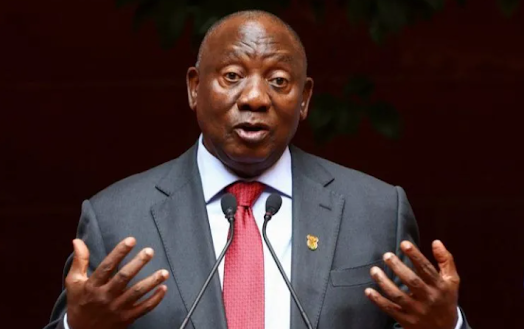Ramaphosa passes full coverage health laws before election
A significant turning point in South Africa’s healthcare reform efforts has been reached with the formal signing into law of a bill aimed at universal health coverage by President Cyril Ramaphosa. Speaking at the Union Buildings in Pretoria signing ceremony, Ramaphosa hailed the legislation as an essential first step toward establishing a more egalitarian society, particularly in view of the impending fiercely competitive election that is only two weeks away.
Ramaphosa emphasized how urgently reform is required and criticized the fragmented and unsustainable nature of the existing healthcare infrastructure. He also characterized the current system as ineffective. The National Health Insurance (NHI) Act tackles the current two-tier health system, which has resulted in a significant percentage of the population being underserved. At the same time, the act offers increased treatment alternatives for individuals who have private insurance.
With the new law, private insurance will be gradually phased out, a public fund will be established to provide free healthcare to all South Africans, and expenditures for NHI-funded services would be managed.
Even though the government has given the NHI Act high marks, other sources have criticized it. The program’s detractors claim it will drain already scarce public resources, limit patient choice, and perhaps drive talented physicians overseas. Some opponents have pledged to challenge the bill in court, viewing it as a political tactic ahead of the next election.
For the first time since 1994, the long awaited and fiercely contested May 29 elections are predicted to see the African National Congress (ANC) led by Ramaphosa get fewer than 50% of the vote. Notable criticism has also been leveled at the legislation’s affordability and potential tax increases to cover its costs.
The new legislation will be legally challenged by the main opposition Democratic Alliance, while its constitutionality will be contested by civil society organization AfriForum. Notwithstanding these obstacles, some groups—like the NEHAWU labor union—have endorsed the NHI Act and urged Ramaphosa and the Treasury to make sure it receives adequate funding.
The NHI Act is a big step closer to achieving the goal of universal health coverage while South Africa works through the challenges of healthcare reform. The future is not without difficulties, though, including legal disagreements and budgetary issues, which emphasizes the need of ongoing communication and cooperation in meeting the country’s healthcare demands.
Ramaphosa emphasized how urgently reform is required and criticized the fragmented and unsustainable nature of the existing healthcare infrastructure. He also characterized the current system as ineffective. The National Health Insurance (NHI) Act tackles the current two-tier health system, which has resulted in a significant percentage of the population being underserved. At the same time, the act offers increased treatment alternatives for individuals who have private insurance.
With the new law, private insurance will be gradually phased out, a public fund will be established to provide free healthcare to all South Africans, and expenditures for NHI-funded services would be managed.
Even though the government has given the NHI Act high marks, other sources have criticized it. The program’s detractors claim it will drain already scarce public resources, limit patient choice, and perhaps drive talented physicians overseas. Some opponents have pledged to challenge the bill in court, viewing it as a political tactic ahead of the next election.
For the first time since 1994, the long awaited and fiercely contested May 29 elections are predicted to see the African National Congress (ANC) led by Ramaphosa get fewer than 50% of the vote. Notable criticism has also been leveled at the legislation’s affordability and potential tax increases to cover its costs.
The new legislation will be legally challenged by the main opposition Democratic Alliance, while its constitutionality will be contested by civil society organization AfriForum. Notwithstanding these obstacles, some groups—like the NEHAWU labor union—have endorsed the NHI Act and urged Ramaphosa and the Treasury to make sure it receives adequate funding.
The NHI Act is a big step closer to achieving the goal of universal health coverage while South Africa works through the challenges of healthcare reform. The future is not without difficulties, though, including legal disagreements and budgetary issues, which emphasizes the need of ongoing communication and cooperation in meeting the country’s healthcare demands.




Comments
Post a Comment